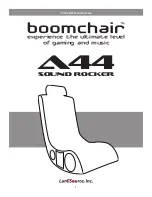
8
User Manual
2.
TECHNICAL SPECIFICATIONS
(1)
Detection method
Infrared absorption
Gases detected
(3)
(set in factory)
Methane,Propane, Butane, Hexane, Ethanol
(2)
CO
2
Range (typical)
100% LEL CH
4
, C
3
H
8
, C
4
H
10
100% volume CH
4
3% volume CO
2
Accuracy
+/-3% LEL CH
4
or +/- 5 % of measurement
+/-2% LEL HC or +/- 3 % of measurement
Long term stability at operating temperature
from -25°C to +55°C
zero: +/-1 LEL
gain : +/-5% LEL or +/- 10% of measurement
Response time without weather protection
with weather protection
T50 < 7 seconds - T90 < 8 seconds
T50 < 10 seconds - T90 < 16 seconds
Voltage
16 to 30 VDC
Average Consumption
2.5 W typical (max intermittent current = 500 mA)
Signal Output
Source signal encoded from 0 to 25 mA (non-isolated):
4 to 20 mA: linear and proportional to gas measurement
0 mA: electronic fault or power loss
0.5 mA: dirty optics, temperature is out of specification
1 mA: detector fault
2 mA: calibration mode
> 23 mA: out of range
Wiring
3-wire shielded cable
Load resistance (with OLDHAM controller)
8 Ohm in loop (250 meters with 1.5 mm² core size cable)
Max. output load resistance
300 Ohm
Cable entry
M20 x1.5 (cable gland in option, See special instructions for use
in ATEX explosive atmospheres )
Cable diameter
Armoured cable: Outer diameter 8.5 to 16 mm
Inner diameter 6 to 12mm
Unarmoured cable: Inner diameter 6 to 12mm
Operating Temperature
-25°C to 55°C by default
(-50°C to +55°C available upon request)
Storage temperature:
-50°C to 55°C
Electromagnetic Compatibility
Complies with EN 50270:06 Types 1 and 2
IP Rating
IP 66 – IP 67
ATEX
Complies with the European Directive ATEX 94/9/EC and IEC
Ex Scheme (see attached declaration)
Weight
1.6 Kg
Materials
INOX 316L
Humidity
0 to 99% RH (noncondensing)
Pressure influence
Measurement: partial pressure
(1)
Due to the continual improvement of our products,
OLDHAM
reserves the right to modify the product
specifications listed in this document at any time.
(2)
The majority of organic components comprising C-H bonds
(3)
Hydrogen is not detected. Saturated hydrocarbons are more sensitive than CH
4
(typically 5 to 7 times more),
while Unsaturated and Benzenic Hydrocarbons are less sensitive than CH
4
.
Warning:
Acetylene and Ammonia have a negative cross sensitivity on the measurement. Above 2,000 ppm
acetylene or 10,000 ppm ammonia, the presence of other gases may be masked.
Summary of Contents for olct ir
Page 6: ...2 User Manuel...
Page 7: ......
Page 12: ...4 User Manual Bracket P N 6322420 Ceiling mount for OLCT IR Figure 5...
Page 13: ......
Page 19: ...2 Technical specifications 11...
Page 21: ...4 Start up 13...
Page 27: ...7 Special instructions for use in ATEX explosive atmospheres 19...
Page 31: ...8 Marking 23...
Page 32: ...24 User Manual 9 Manufacturer s Declaration of Conformity...
Page 33: ...9 Declaration of conformity 25...
Page 34: ...26 User Manual...
Page 35: ...27...
















































